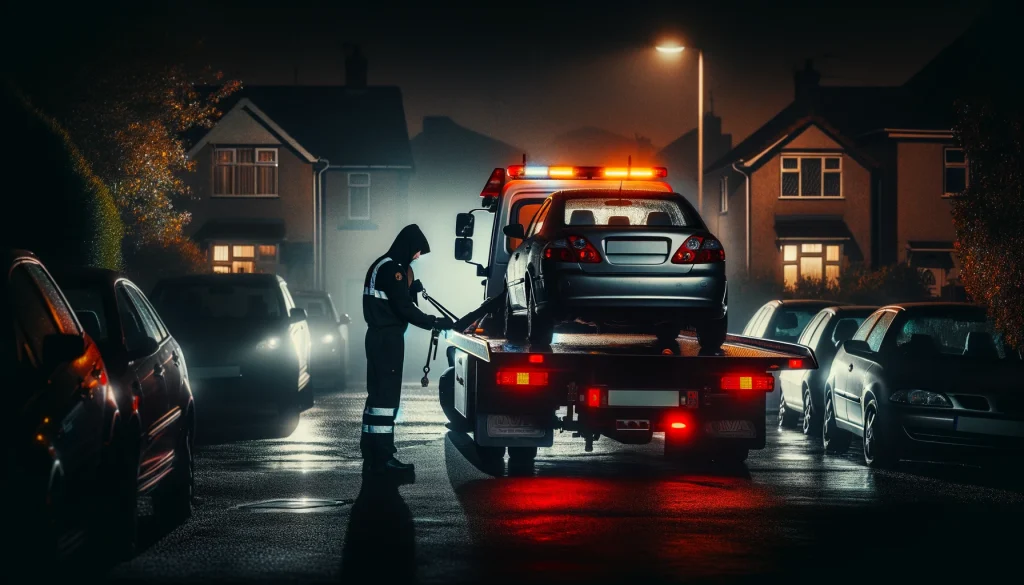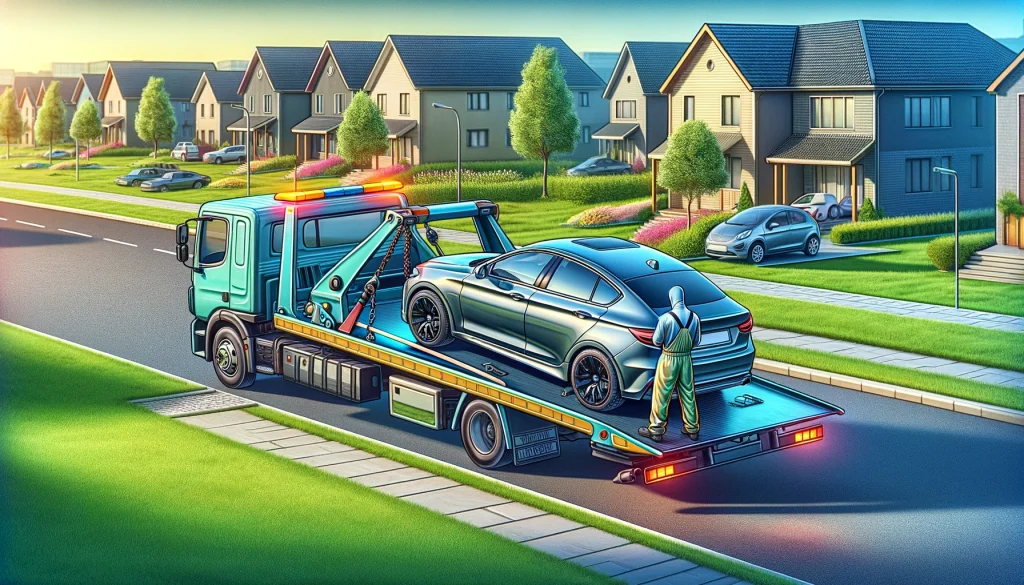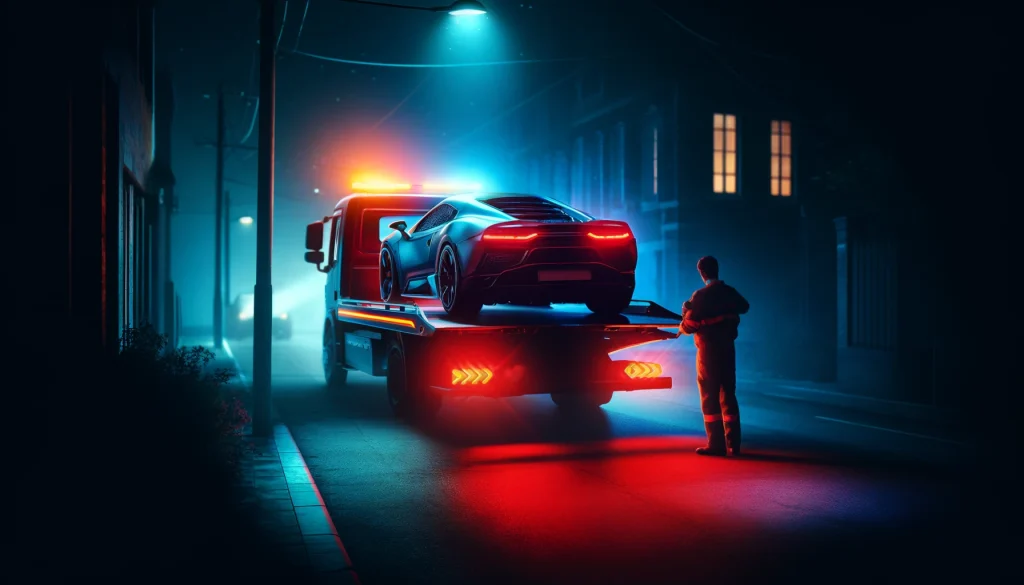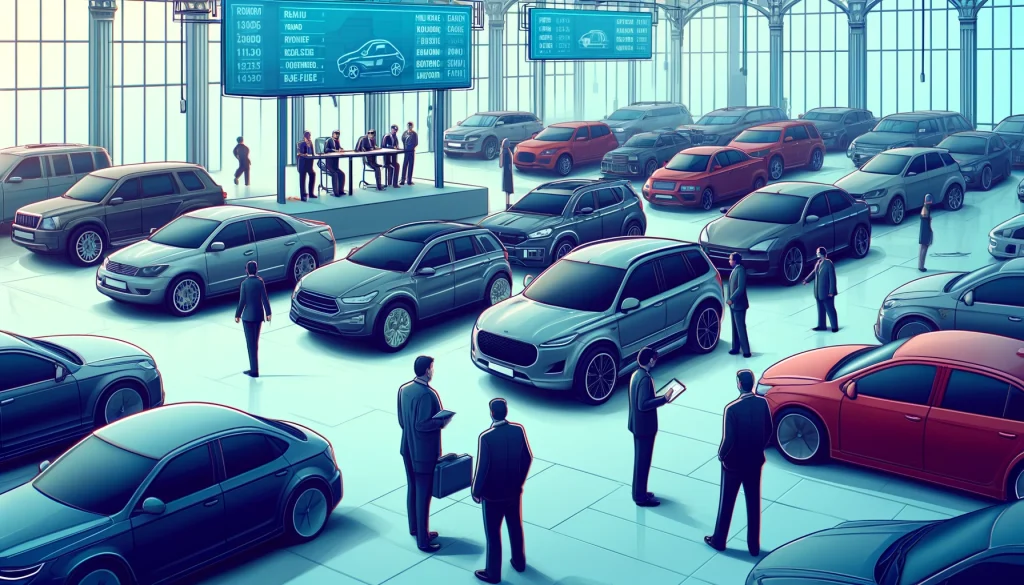Are repo cars cheaper than traditional used vehicles? The answer is often yes, but there are important considerations before purchasing a repossessed car.
Below is a quick reference table I created to show the pros and cons of buying a repossessed car:
| Pros | Cons |
|---|---|
| Potential for significant savings (25-40% below market value) | Unknown vehicle history and maintenance records |
| Access to detailed vehicle history reports | Higher risk of previous damage or excessive wear |
| Opportunity to thoroughly inspect car before purchase | Limited ability to negotiate price, especially at auctions |
| Financing options may be available through lenders | Typically sold “as-is” with no warranties |
Table of Contents
What is a Repossessed Car?

A repossessed car, also known as a “repo car,” is a vehicle that has been seized by a lender or finance company due to the owner’s failure to make loan payments.
Once repossessed, the lender attempts to resell the car to recoup losses from the defaulted loan.
Repo cars are frequently sold at discounted prices through auctions, dealerships, or directly by the lender.
Is Buying a Repossessed Car Bad?
Should you buy a repossessed car? Absolutley!
The truth is that nothing about the car is usually different, it’s just the stigma or likelihood that something “Could” be wrong that makes these cars less desirable.
Tip: Always get an inspection.

Here are the biggest reasons why you buying a repo car might be a good idea:
Potential for Significant Savings
One of the biggest advantages of purchasing a repossessed car is the potential for substantial savings.
Repo cars sold at auctions can be priced 25-40% below market value, as lenders are motivated to sell quickly and recover what they can from the defaulted loan.
Access to Higher-End Vehicles
The lower price point of repo cars may allow you to access higher-end vehicles that would otherwise be out of your budget.
This can be an opportunity to own a more luxurious or well-equipped car at a fraction of the traditional cost.
Pros and Cons of Buying Repossessed Cars

Advantages
1. Lower Purchase Prices
Repossessed cars are often sold at significantly lower prices compared to traditional used vehicles, providing an opportunity for substantial savings.
2. Opportunities for Great Deals
With some research and due diligence, buyers can find excellent deals on repo cars, particularly at auctions where competition may be limited.
Disadvantages
1. Uncertain Vehicle History
Repo cars often come with limited information about their maintenance history and previous ownership, which can make it difficult to assess the vehicle’s true condition.
2. As-Is Condition and Lack of Warranty
Most repossessed cars are sold “as-is,” meaning the buyer is responsible for any repairs or issues that arise after the purchase. They also typically do not come with warranties, adding to the potential risk.
Where to Find Repossessed Cars
Bank and Lender Sales
Financial institutions may sell repossessed cars directly to the public to recover losses from defaulted auto loans. Contact local banks and inquire about repo sales or check their websites for listings.
Online and Local Auctions

Websites like eBay, Copart, and Manheim feature repossessed vehicles for bidding at auction, offering a wide selection.
Additionally, local auctions organized by repossession companies and government agencies can also be a good source of repo cars.
Dealerships
Some dealerships offer repossessed cars for sale, often acquired through trade-ins or auctions. Keep an eye on dealership listings for potential deals on repo vehicles.
Repo Company Sales
Car repossession companies acquire defaulted vehicles and sell them to the public, often at a fraction of the original cost. Research local repo companies and inquire about their inventory and sales process.
What to Look for When Buying a Repo Car
Check Vehicle History Reports
Obtain a vehicle history report to gain insight into the car’s past, including accidents, maintenance records, and ownership history. This can help identify potential red flags or issues.
Inspect Car Condition Thoroughly
Before making a purchase, thoroughly inspect the repo car for any signs of damage, wear, or neglect. If possible, have a trusted mechanic conduct a professional inspection to uncover hidden problems.
Consider Repair and Maintenance Costs
Factor in the potential cost of repairs and maintenance when considering a repo car purchase. A lower upfront price may not be a bargain if the vehicle requires significant work to be roadworthy.
How to Buy a Repossessed Car
Set Your Budget
Establish a realistic budget for your repo car purchase, taking into account not just the purchase price but also taxes, registration, insurance, and potential repair costs.
Secure Financing
If you need financing for your repo car purchase, research options in advance. Some lenders specialize in loans for repossessed vehicles, while others may offer traditional used car financing.
Understand the Buying Process
Familiarize yourself with the specific process for purchasing a repo car, whether it’s through an auction, dealer, or directly from a lender. Each avenue may have its own requirements and procedures.
Negotiate the Price
When possible, negotiate the price of the repo car based on your research and the vehicle’s condition. Be prepared to walk away if the deal doesn’t meet your needs or budget.
Tips for Successfully Buying a Repo Car
- Research the specific vehicle make and model to identify common issues or problems.
- Compare prices of similar vehicles to ensure you’re getting a good deal.
- Have funds or financing secured before beginning the buying process.
- Don’t be afraid to walk away from a deal that seems too risky or expensive.
Is Buying a Repo Car Right for You?
From my experience you treat a repo car the same as any car and order an inspection before making a buying decision.
It is true that repo cars have a higher chance of having been neglected by their previous owner, but this isn’t always the case, and I wouldn’t put off the opportunity to get a great deal on a car over public stigma.


